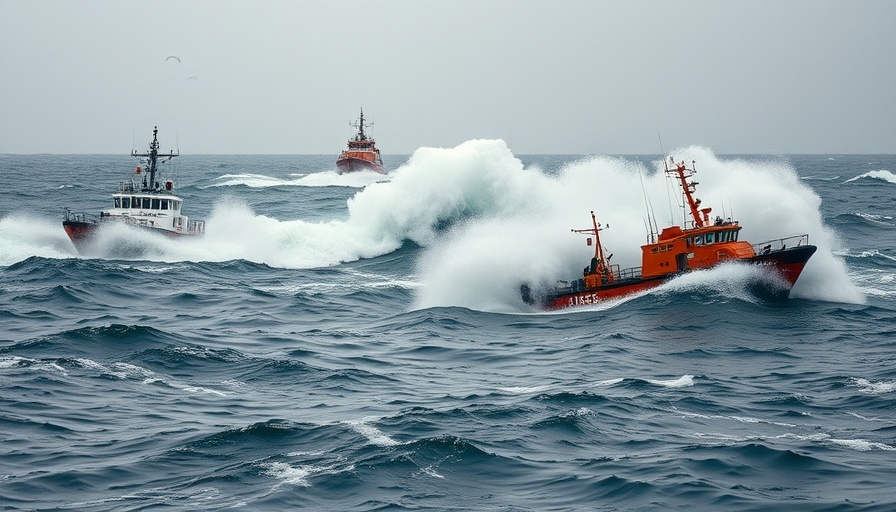
Unveiling the Elite: The U.S. Coast Guard's Surfmen
The U.S. Coast Guard’s elite surfmen represent the pinnacle of maritime rescue operations. Their unwavering dedication and rigorous training prepare them for extraordinary missions that often take them into the heart of danger. Tasked with operating lifeboats in the most challenging sea conditions, these individuals are not just rescuers—they are first responders in one of the toughest environments known to man.
The Training: Building Resilience and Skill
Surfmen embark on a grueling training journey designed to push their physical and mental limits. This training includes navigating through treacherous waters during storms, handling high-surf conditions, and mastering the use of specialized equipment. Such rigorous preparation ensures that they are ready when lives are on the line.
As a testament to their training, surfmen undergo simulations that replicate emergency scenarios they may face. This hands-on approach not only hones their technical skills but also develops crucial decision-making abilities under pressure. Each drill enables them to respond instantly, ensuring the safety of those in distress.
The Importance of Their Role: Lives in the Balance
The surfmen’s role extends beyond the physicality of their training; they are key figures in maintaining safety along America’s coastlines. Every year, countless lives are saved by their capable hands. Their efforts exemplify the essence of service and sacrifice, driving home the importance of having trained professionals ready to respond to emergencies.
According to recent statistics, the U.S. Coast Guard has conducted thousands of rescues annually, with surfmen playing a critical role in these operations. The emotional impact of their work cannot be underestimated, as they often confront harrowing situations while providing comfort and support to those they rescue.
Challenges They Face: Elements Beyond Control
While the surfmen are well-trained, they contend with environmental factors that challenge even the best. High winds, changing tides, and unpredictable weather can turn a rescue operation into a life-threatening endeavor. Understanding these challenges is crucial for civilians as well; it highlights the need for caution and respect for the sea.
For prospective surfmen, the reality of rescues is coupled with their profound commitment to overcoming these obstacles. Each challenge met only enhances their resolve to serve and protect.
Future of the Elite Surfmen: Technological Integrations
As the Coast Guard looks to the future, it seeks to integrate more advanced technology into surfmen training and operations. Innovations such as drones and AI may alter rescue protocols, allowing for quicker response times and improved safety measures. This potential technology integration will not only enhance operational efficiency but also provide a higher level of readiness for every surfman.
The blending of human skill with technology could redefine rescue missions, ensuring that the Coast Guard remains at the forefront of maritime safety.
Community Connections and Engagement
The connection between surfmen and the communities they serve is profound. Community engagement initiatives aim to educate the public on water safety and the importance of respecting ocean conditions. By fostering these relationships, surfmen can build a supportive network that amplifies their rescue efforts.
Additionally, awareness campaigns promote understanding and respect for the Coast Guard's challenging missions. These efforts not only honor the surfmen's dedication but also encourage responsible behavior on the water among local boaters and beachgoers.
Call to Action
As we reflect on the incredible heroism of the U.S. Coast Guard surfmen, it is essential to remember the importance of safety at sea. Whether you enjoy boating, surfing, or simply spending time by the ocean, understanding the conditions and respecting nature are vital in ensuring everyone’s safety. Engage with local resources for safety tips and share this knowledge with friends and family. Together, we can help keep our waters safe.
 Add Element
Add Element  Add Row
Add Row 



Write A Comment